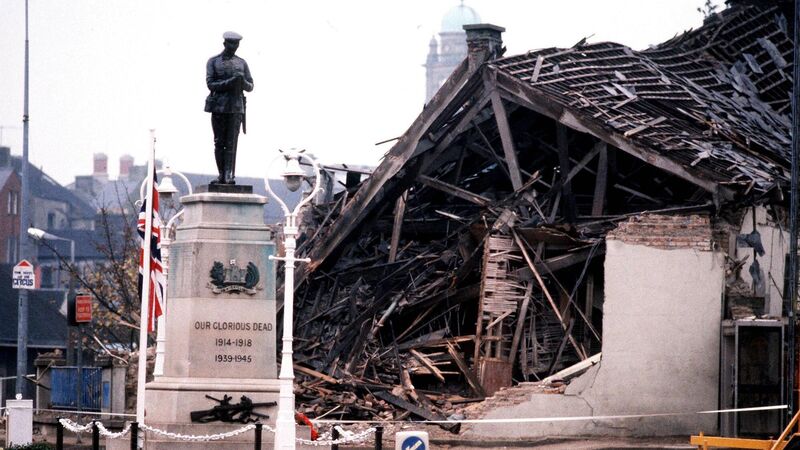Podcast Corner: Two new shows delve into Irish history

The area near the Cenotaph at Enniskillen following the bombing in 1987.
“It’s been so long, surely some of those who know what happened that day will be ready to talk,” says Mario Ledwith, a news reporter at the Times and host of this six-part podcast series - the final episode is due this week. He’s talking about the Enniskillen bombing in Fermanagh in 1987. Eleven people were killed attending a Remembrance Sunday commemoration in the town, while a 12th victim dies years later while in coma. Nobody has ever been charged.




